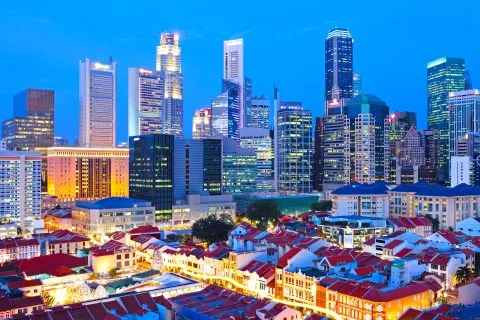Andrew Morriss
By Andrew Morriss“Nobody knows what’s going to happen,” said F1 guru, Bernie Ecclestone, when asked what the impact of the financial crisis will be on major sports sponsorship.
With key donors to Formula One including ING, Royal Bank of Scotland, Banco Santander, Credit Suisse and Allianz, the exit of any of these companies could mean the difference between having ten or eleven teams in 2009. And racing isn’t the only sport to rely heavily on its sponsors. In football, the rumour is that Manchester United’s new strip will read ‘FED’ rather than AIG, since the nationalisation of the US insurer. But unlike football - which raises a high proportion of income from TV, gate sales and merchandising - sponsorship is a much larger percentage of F1 total revenues. So should petrol heads be worried? Will there be fewer teams or fewer races? Could we see cost cutting exercises like speed restrictions or the end of the night race?
ING’s Head of Marketing, Isabelle Connor, is very positive on the bank’s involvement with F1. “From the beginning we were looking to build brand value.”And what brand value that has been. Mid-race advertising and high profile campaigns with their celebrity driver Fernando Alonso have caterpulted ING to the forefront of Formula 1. The resulting publicity has raised the profile of what was previously one of the quieter European banks to a household name. Understandably, the intangible ROI has been magnificent, but in these difficult times, are the board beginning to demand a more tangible result?
Isabelle admitted that ING’s investment in F1 exceeds Euro 50million per year. A key part of that investment is ‘activation’ - the marketing sponsors byword for deriving benefit beyond logo recognition. A typical activation campaign might include media ads and promotions with prizes of F1 tickets in exchange for participant’s details. But ING have taken activation a step further. “At ING we have gone beyond the standard campaigns and given our local markets the freedom to work on new ideas,” said Isabelle. For example, in Spain they set up a website to find Fernando Alonso’s spokesperson.
The jobsite received countless hits and more than 20,000 entries. Another innovative campaign were the mock-up race cars which tour around the world, re-inforcing the ING brand with Formula One imagery. The visibility and popularity of efforts like this allow ING product salesmen to leverage the displays as a way to prospect for new clients. “We are seeing returns on this investment,” said Isabelle. Independent research has shown that brand awareness has increased by 13%, with a 5-fold increase in the number of people who have heard of the brand.
Not everyone’s a winner
Not all F1 sponsors are seeing these kind of figures, however. In a market survey from Research International that asked participants which brands they associated with the sport, Credit Suisse was less than half as likely as ING to be recognized. So why is ING’s activation so much better at activating its target audience? “Logo and colour schemes are important. We considered Ferrari, Mclaren and Renault, but only Renault would allow us to use the colours of our choice, we had the chance to work on the design of the overall livery of the car,” said Isabelle. When it was first unveiled, the car certainly looked very different.
Its vivid colour scheme gave ING an immediate advantage on the recognition front. With all of these positive results, ING should be rightly proud of their investment, but is the return sufficient to incentivise the Board to keep sponsoring next year? Karen Williams, head of corporate communications for Asia Pacific, says that the answer at this stage is yes. “We are actually going to be more aggressive with our marketing budgets for next year,” said Karen, which is good news for F1 fans.
If constructors go, will sponsors too?
The biggest concern for the sport would not seem to be a lack of sponsor interest, but a fear that the event owner, Bernie Ecclestone, may instigate a new rule to standardize engines across the teams. Ecclestone’s logic is to reduce the burden of development and testing, which is particularly onerous for smaller teams. The news has not been well received. In fact Ferrari, 2008’s constructors’ champion, has threatened to pull out of F1 completely if Bernie goes ahead with his plans for 2010.
At the moment, ING are not confirming whether they will renew their sponsorship at the end of 2009. After all, Euro50million is a large sum of money to spend. On the one hand the rise in brand awareness has been amazing – a combination of a well chosen tie-up and a well executed marketing campaign. But if some of the big name constructors depart, how soon will the fans (and sponsors) follow?



















 Advertise
Advertise














